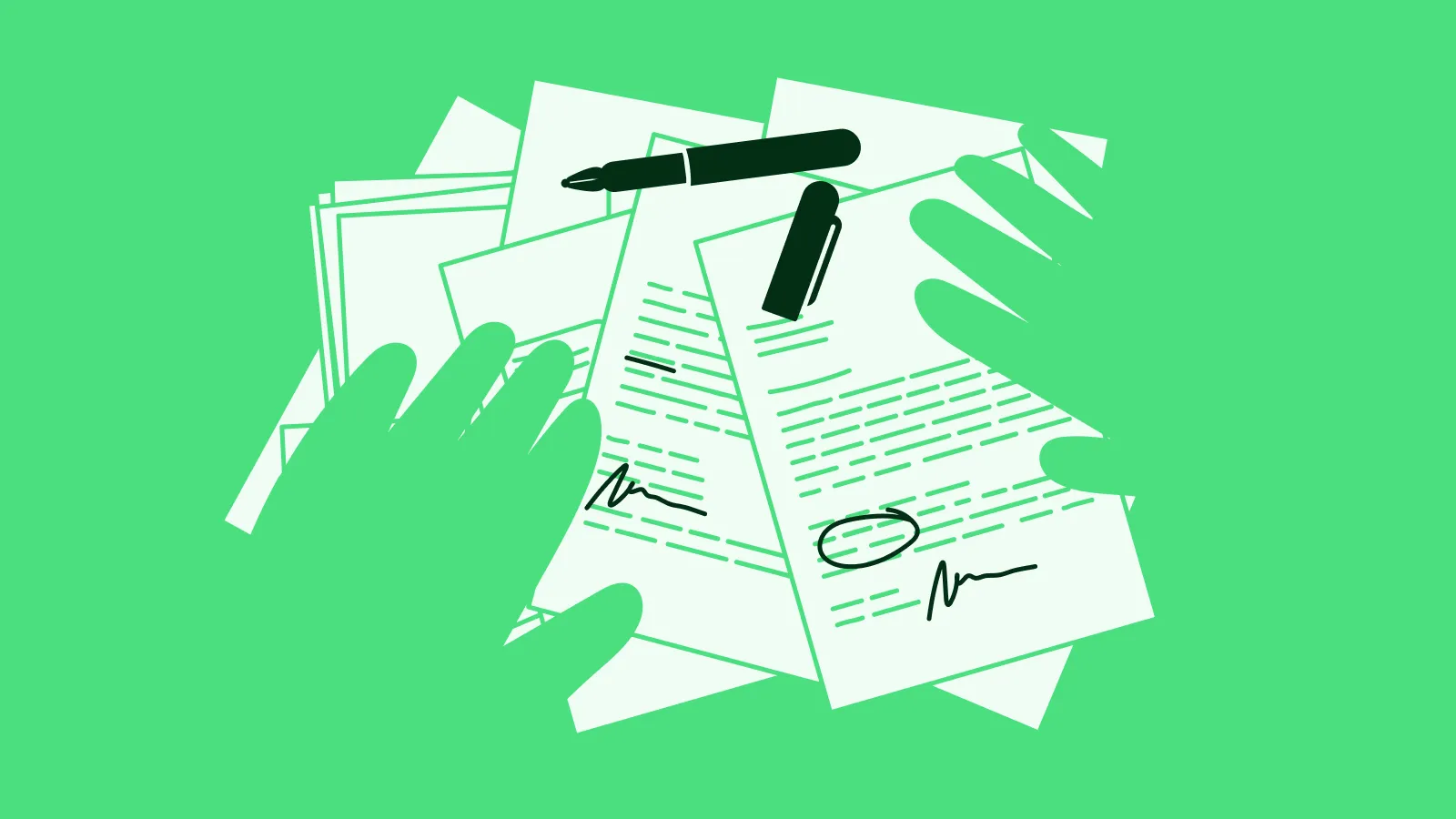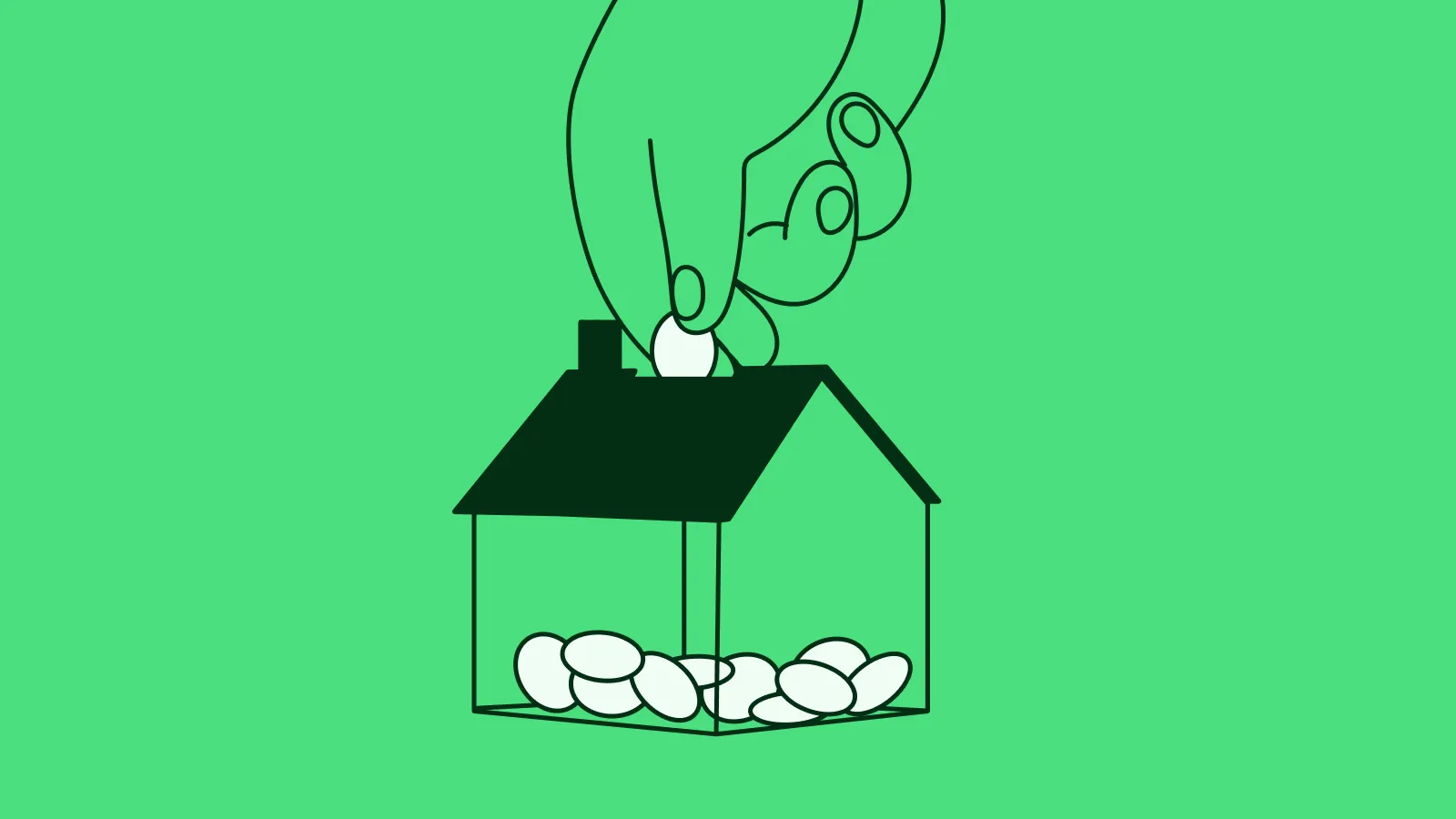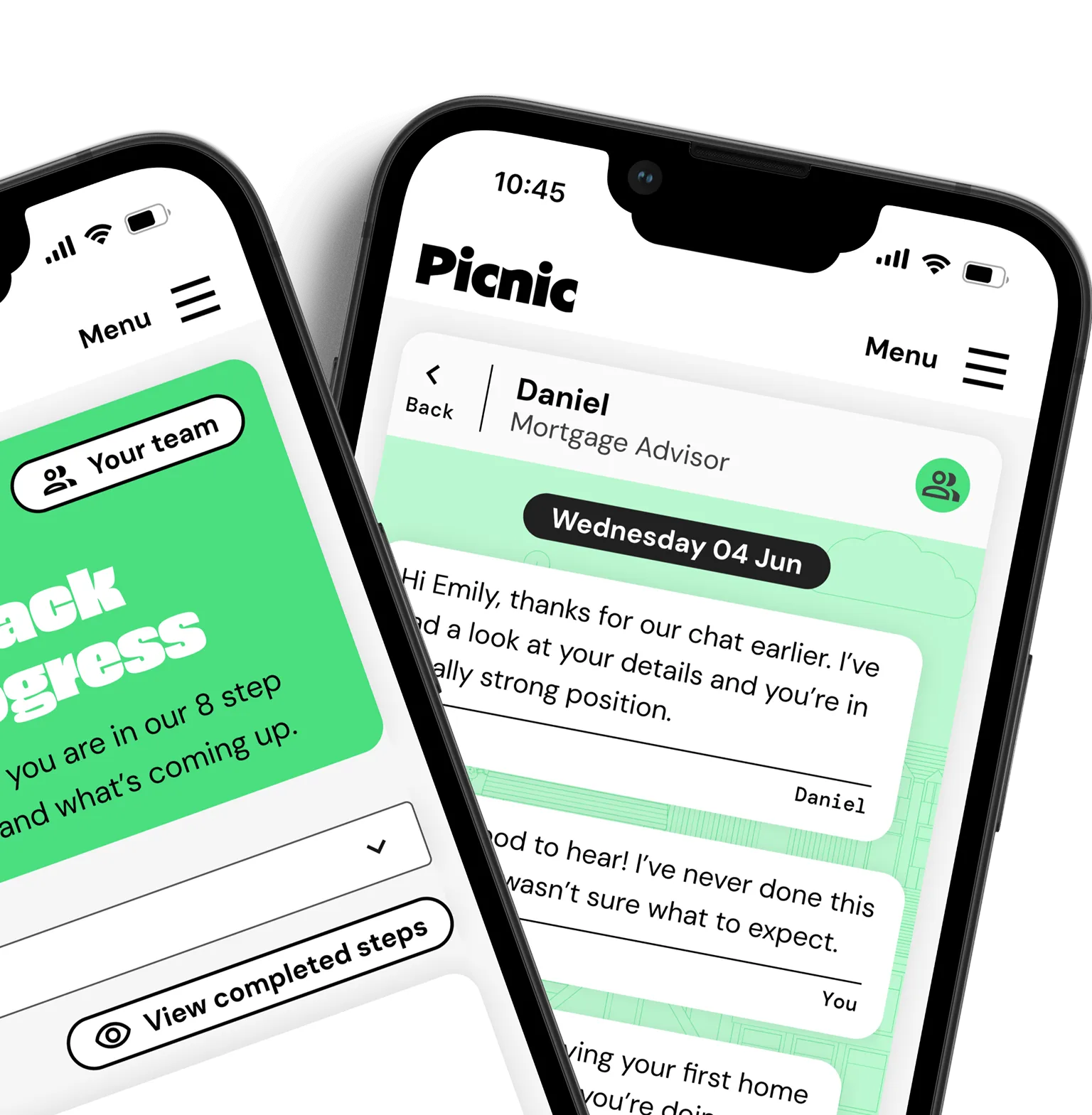Make Your First Move
Guides
Guides for First-Time Buyers
These guides break down the basics, from deposits to legal work, to help you feel more confident about your first home-buying journey.
14 mins
The Picnic Guide To Buying a Home

9 mins
Mortgages For First-Time Buyers

6 mins
Choosing Your Mortgage

4 mins
How Much Mortgage Can You Get?

5 mins
Mortgage Deposits

4 mins
How Conveyancing Works

3 mins
How Stamp Duty Works

5 mins
Joint Mortgages

5 mins
How To Get A Mortgage In Principle

No More Guesswork
• A Decision in Principle direct from a lender
• An Eligibility check that won’t affect your credit score
Less Option Overload
• Compare 100+ lenders*
• A personalised shortlist of mortgage matches
No More Radio Silence
• Live tracker, real-time updates and messaging
• A dedicated team who keep you in the loop at every stage
Less Messy Paperwork
• Simple e-signing and document upload
• Everything in your own innovative portal

The Mortgage Experts Trusted by Experian
Picnic is Experian’s exclusive mortgage partner, trusted to make mortgages simple. With access to 100+ lenders and expert support, we’ll help you find the right fit without the stress.
Working With the Brands You Trust

Everything You Need, All in One Place
No back-and-forth emails. No printing. No guesswork.
📍Track your mortgage progress step-by-step
✍️ Sign and upload documents in seconds
💬 Message your advisor any time
✅ Stay organised and in control
Your mortgage, made simple — start to finish.
Frequently Asked Questions
Mortgages 101 for First-Time Buyers
Straight answers to your first-time mortgage questions. Clear, honest guidance to help you move into your first home with confidence.
A mortgage is a type of long-term loan used to help you buy a property (or a plot of land you intend to build a property on). You borrow money from a lender, typically a bank or building society, and agree to repay the amount, plus interest, over time, usually 25 years or more, every month.
Mortgages are the most common type of secured loan available. For secured loans, a lender will use an asset - in this case, it would be the property you’re buying - as security for the money you’ve borrowed until it’s repaid. This also means that if you don’t keep up with your repayments, the lender could repossess the property to recover the amount owed.
The whole process usually takes around 4 to 8 weeks from start to finish, but it can be quicker or slower depending on your situation. The timeline includes steps such as:
Obtaining a mortgage in principle
Submitting a full application
Property valuation
Finalising legal and financial checks.
Delays can occur due to incomplete documentation, slow property surveys, or issues in the property chain. Being well-prepared and responsive can help speed up the process.
Most traditional mortgage terms are 25 years, but they can be both shorter or longer, depending on your circumstances. Some lenders offer mortgages for just 5 years if that’s affordable to the applicant and acceptable to the lender.
Longer-term mortgages, up to 45 years, are now available and designed to help make mortgage repayments as affordable as possible.
There are two main ways to repay your mortgage: capital and repayment, or interest-only.
If you’re buying a home to live in, capital and repayment mortgages are, by far, the most common choice, with interest-only typically only used for buying investment properties, such as a buy-to-let.
You can find out more about how each repayment method works in our guide: Interest-Only Mortgage or Capital Repayment: Which to Choose?.
A mortgage rate is another name for the interest rate charged by a lender, which is added to the amount you borrow to buy your home.
Lenders typically offer two types of mortgage rate deals: fixed-rate and variable-rate. The deal you choose will determine the amount of your monthly mortgage repayments for a set period (usually 2, 3, or 5 years).
Fixed-Rate Mortgages - your payments remain ‘fixed’ throughout the term of your mortgage deal.
Variable or Tracker-Rate Mortgages - your payments can go up or down, usually in line with the Bank of England base rate.
When the term of your current mortgage rate deal ends, you can either remortgage to another lender offering better terms or transfer to another mortgage rate deal with your existing lender.
You can find out more in our guide, Choosing Your Mortgage.
A mortgage deposit is the upfront payment you make towards the cost of a property when you’re buying a home. It represents a percentage of the property's value, with the rest covered by a mortgage loan from a lender.
So, for example, if you’re buying a house for £200,000 with a 10% deposit, this means you’ll pay £20,000 and borrow £180,000 to complete the purchase.
In the UK, the minimum deposit required is usually 5% of the property’s value, but the larger your deposit, the less you need to borrow, meaning lower monthly repayments.
The loan-to-value (LTV) ratio is a percentage that reflects the size of your mortgage compared to the value of the property you’re buying. For example, if you want to buy a property worth £250,000 and need a mortgage for £200,000, the loan-to-value would be 80% (200,000 / 250,000 x 100 = 80).
The size of your deposit will directly impact your LTV ratio. The higher your deposit, the lower your LTV will be. Mortgage lenders typically offer more favourable interest rates for applications with lower Loan-to-Value (LTV) ratios. If you borrow less, this means there’s less risk for them.
You can either approach a mortgage lender directly - pretty much every high-street bank or building society can provide you with a mortgage - or you can seek the help of a mortgage broker.
The main difference between the two is that a mortgage lender can only offer its own suite of mortgage rates and products. A broker (like us), on the other hand, has access to the whole mortgage market, giving you a better chance of securing the best rates and terms available at that time.
A mortgage broker can also make a huge difference by helping you prepare and submit your mortgage application, offering their full support during the process and making sure you apply to the right lender.
First-time buyers, home movers, and those looking to remortgage or release equity can all apply for mortgages. Specialist mortgage lenders are also available to help people with adverse credit, complex incomes, or landlords looking to buy an investment property.
Generally, if you’re over the age of 18 and a UK resident, you can submit a mortgage application to buy a property. The key factors that could affect whether your application is successful or not would be:
Your age
Your income and outgoings
Credit history
Employment status
Size of your deposit
How much you want to borrow
A Mortgage in Principle (MIP), also known as an Agreement in Principle (AIP), is an estimate from a lender of how much they might be willing to lend you based on an initial assessment of your finances.
It’s not a formal mortgage offer but acts as a useful indication of your borrowing potential, helping you understand your budget and showing sellers that you’re a serious buyer. You can apply for an MIP online and receive a response within minutes.
Ready to apply for a mortgage in principle with us? Great! Just click the button below to make an enquiry, and one of our Mortgage Experts will be in touch to help you get started.
